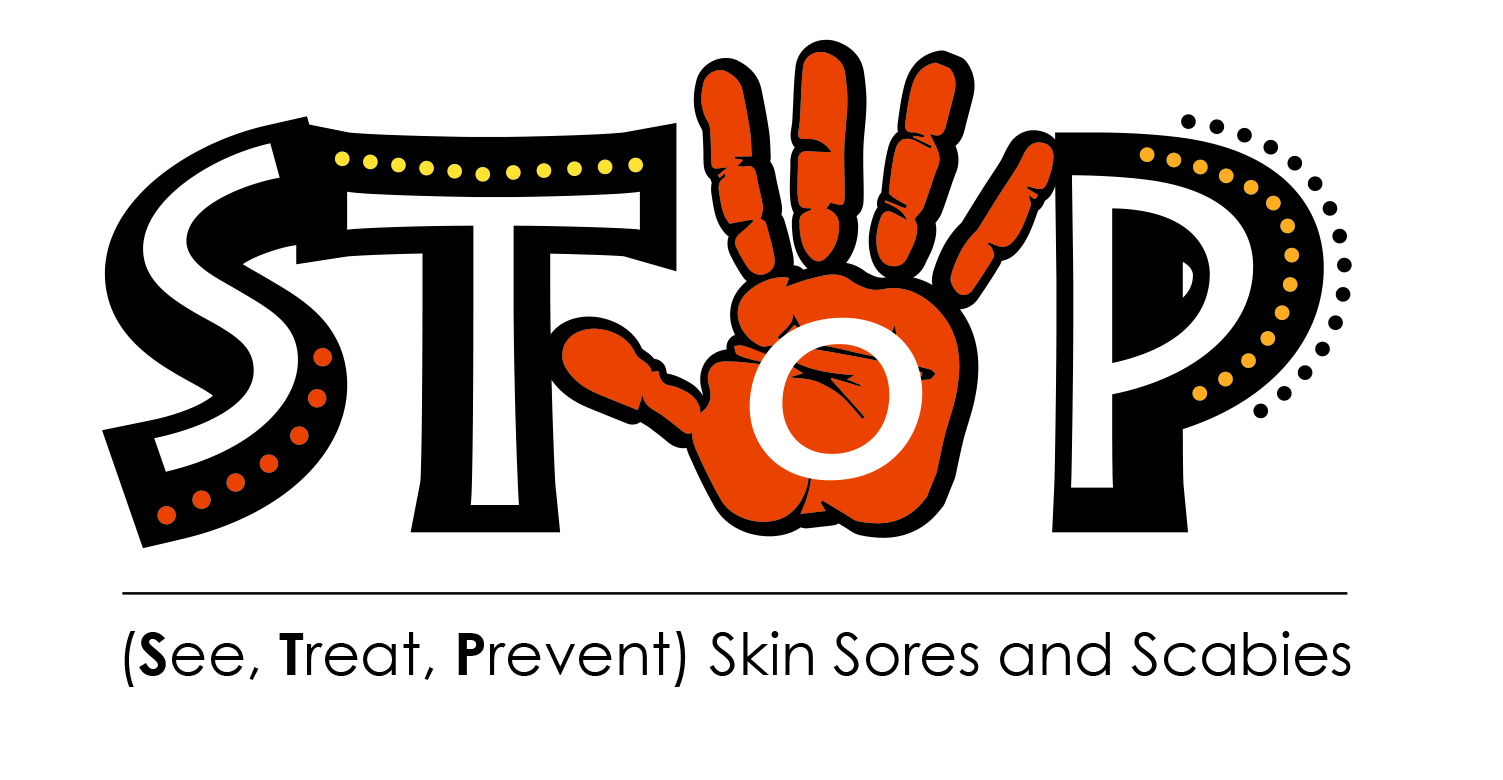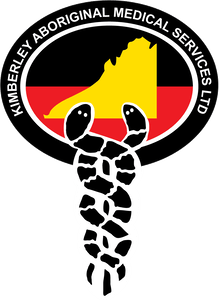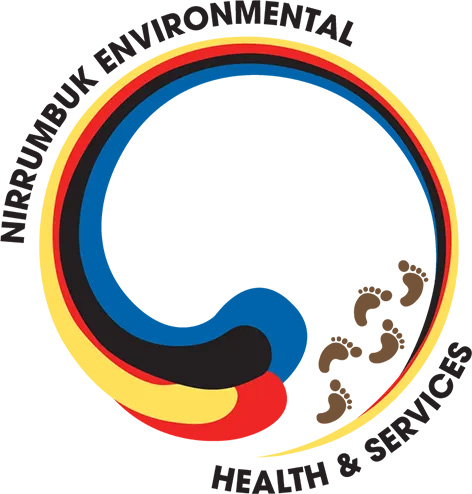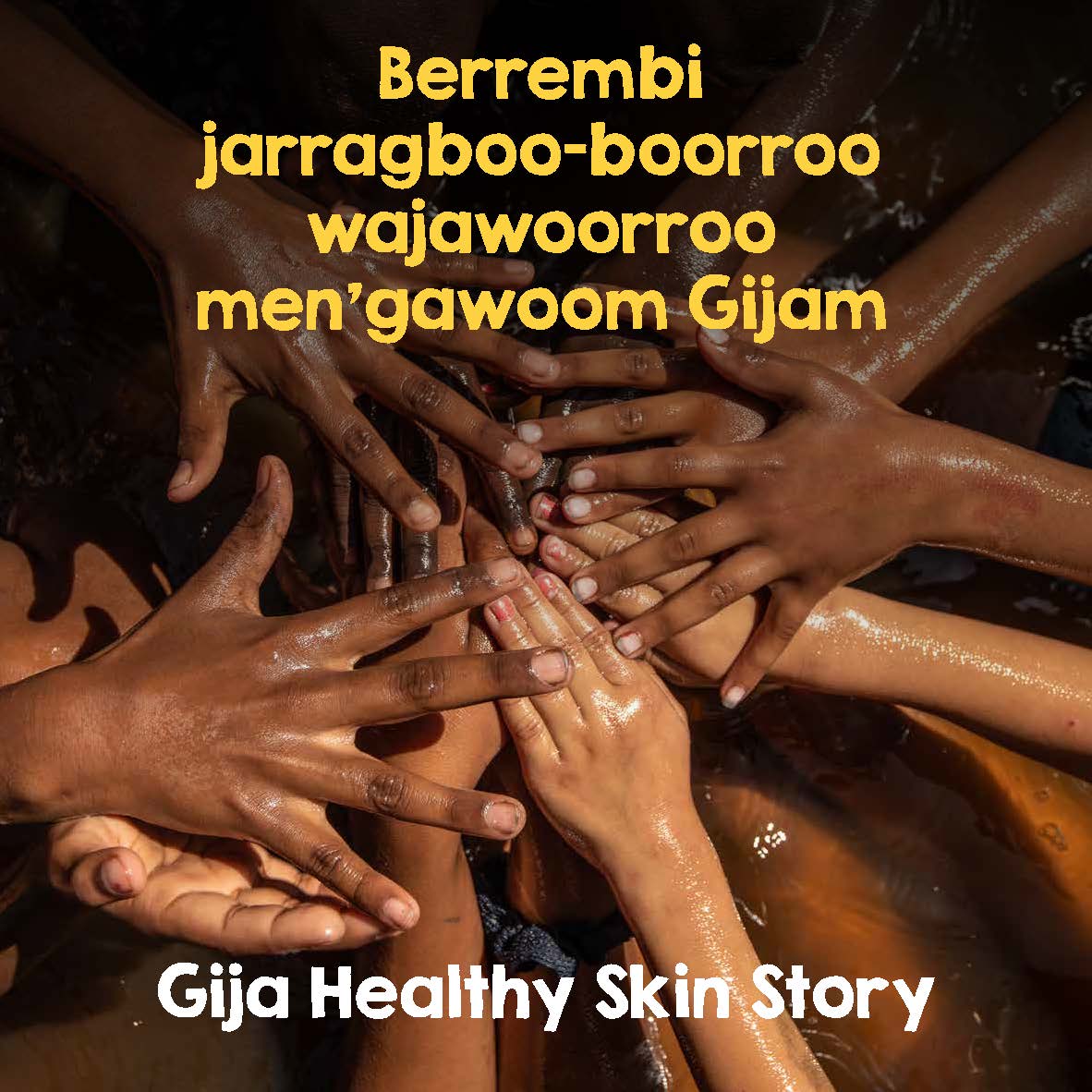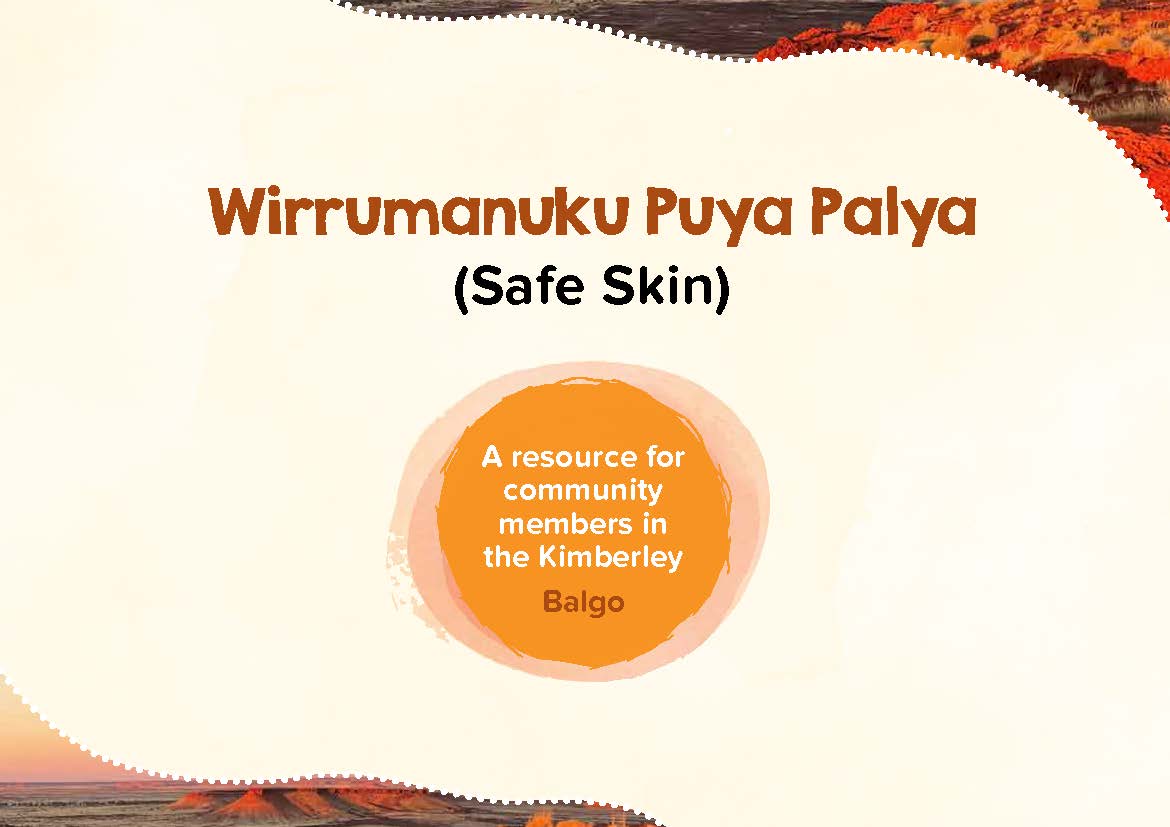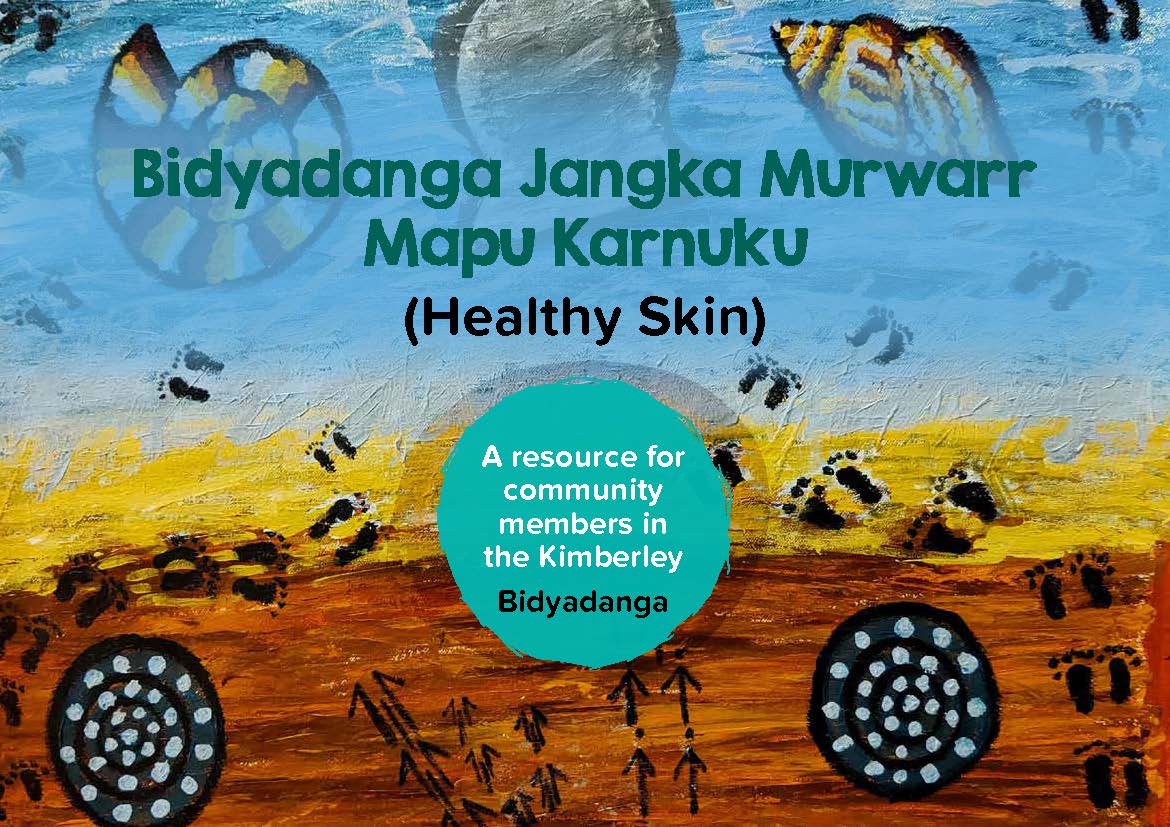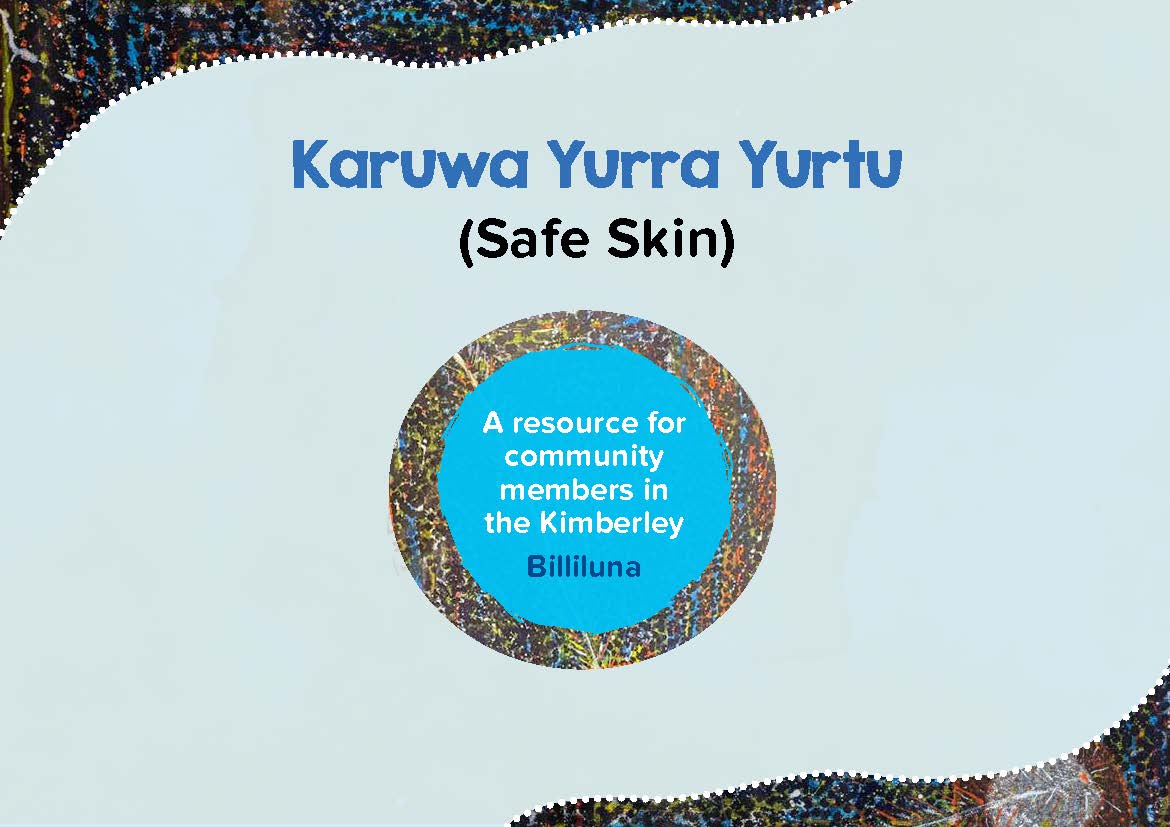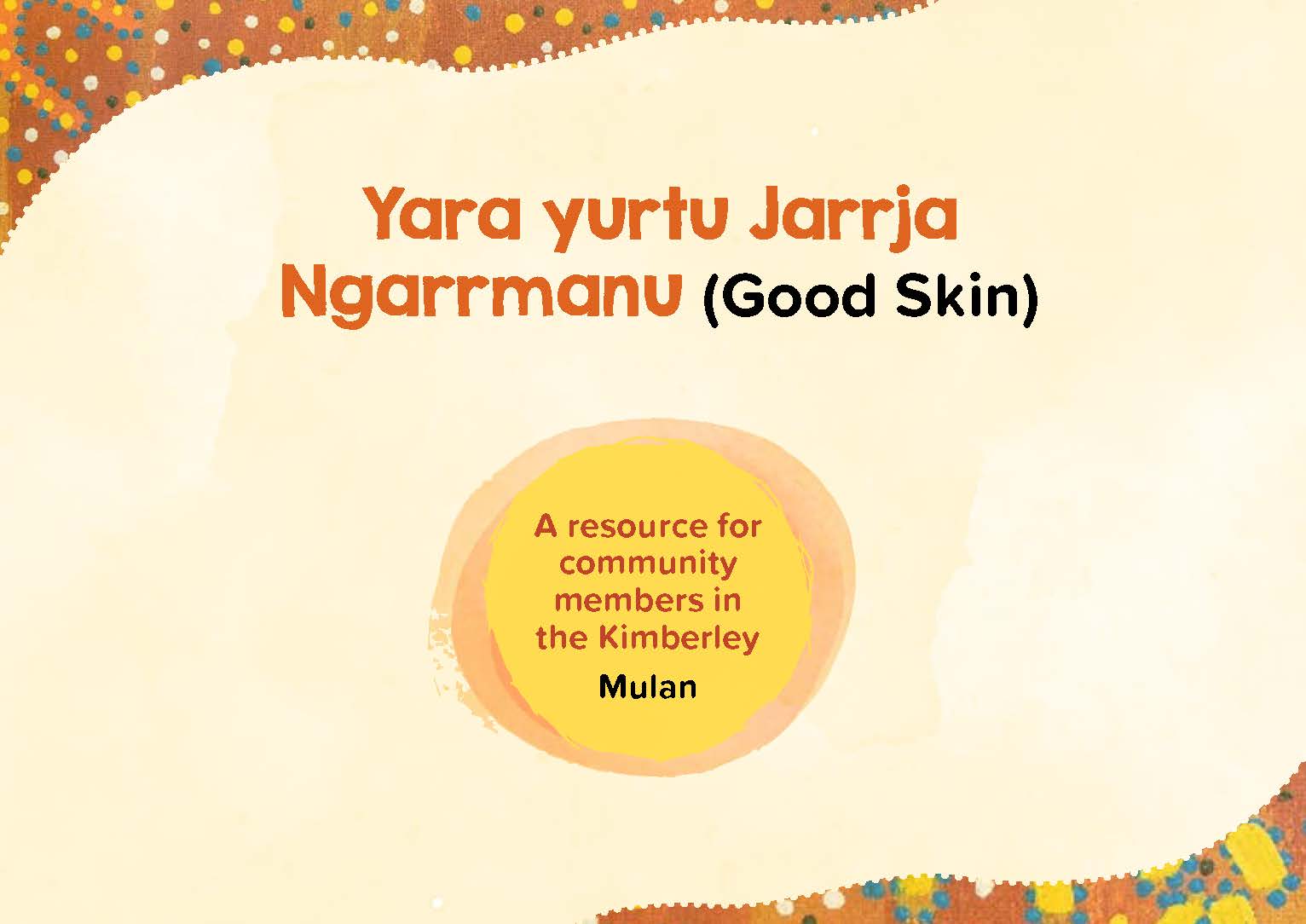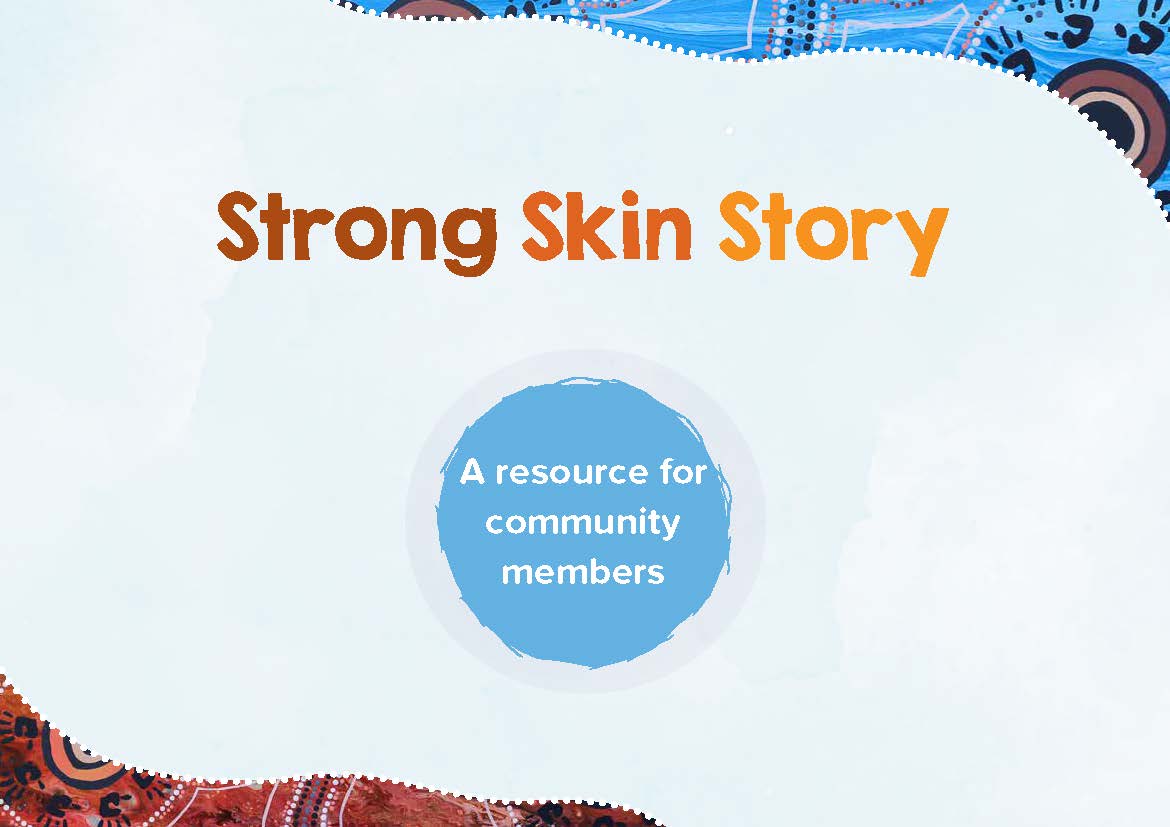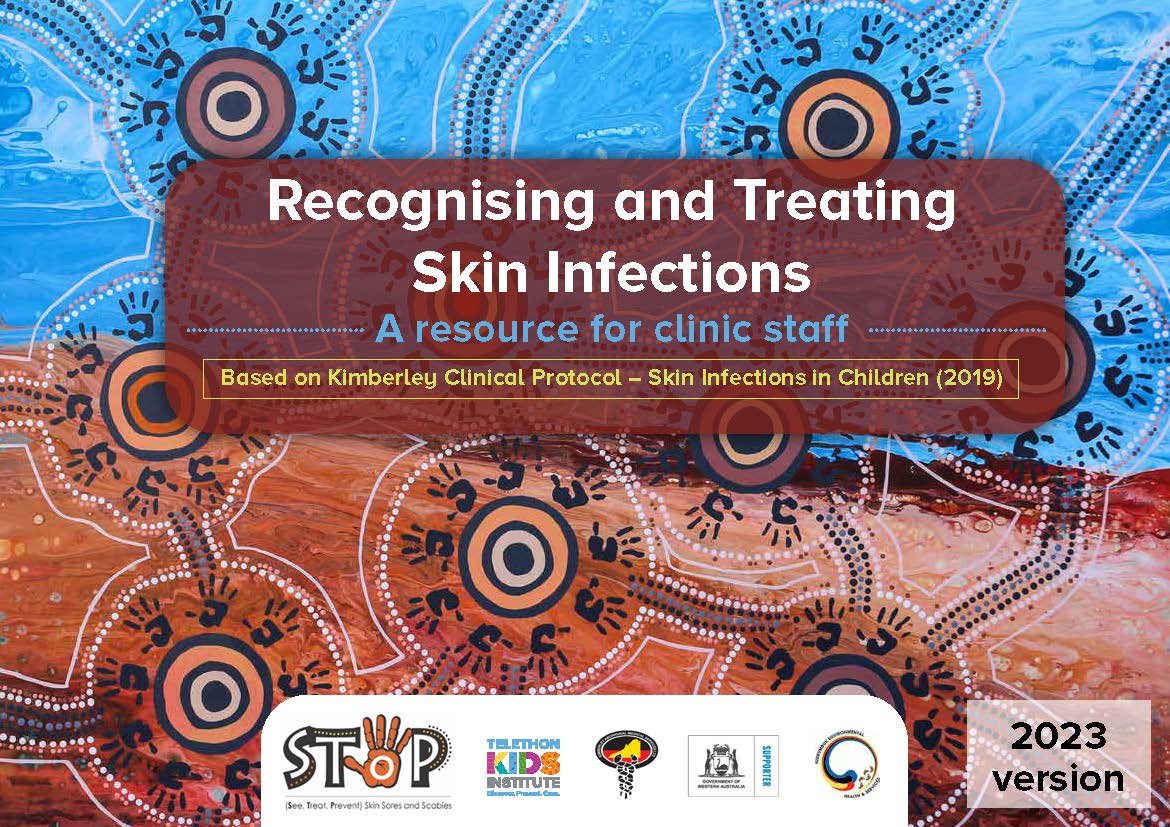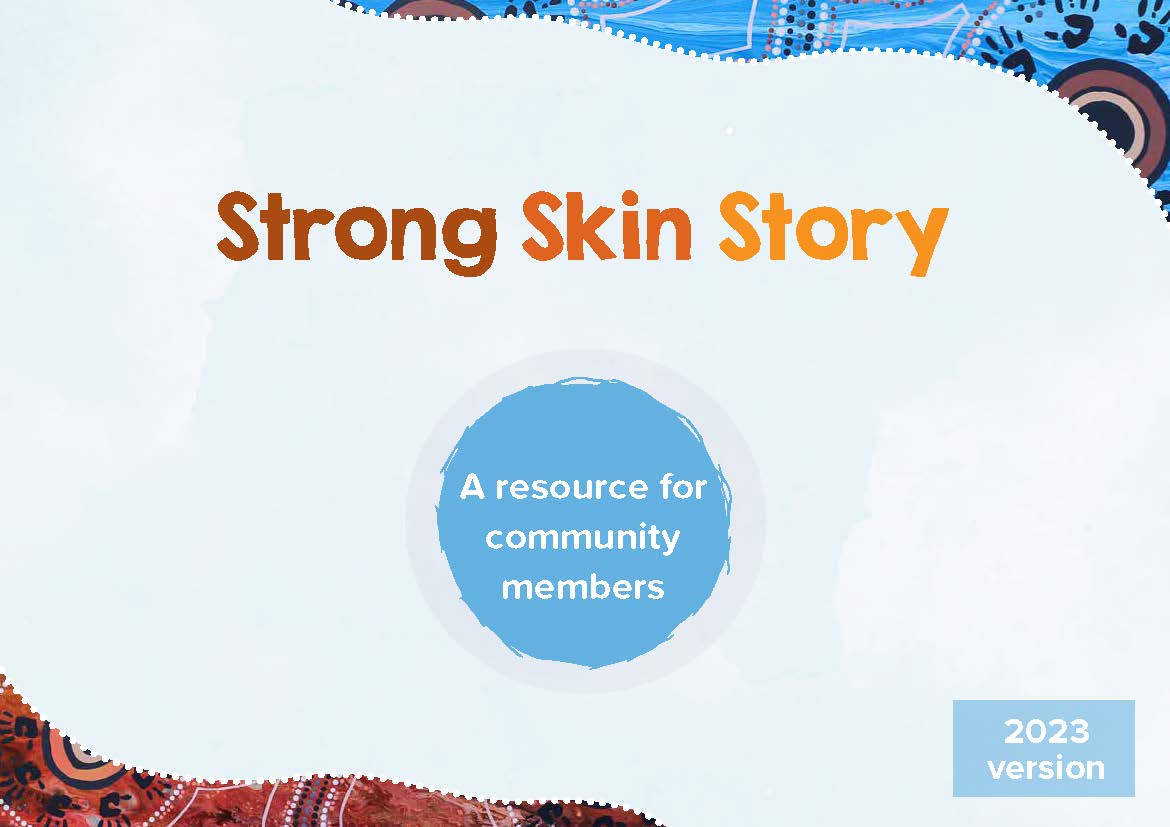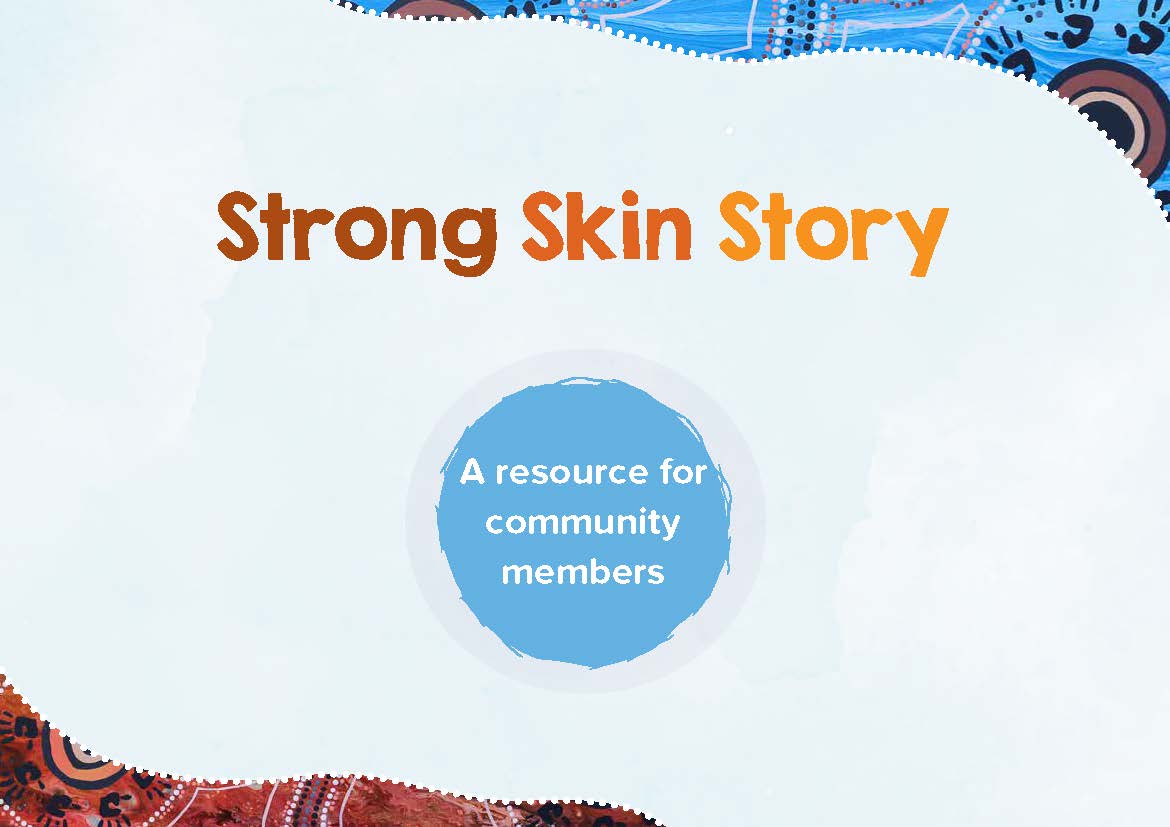Gathering Circles – the SToP Trial Story
Gathering Circles, painted by Bardi man Luke Riches (2020), tells the story of the The SToP Trial. The circles represent the nine Aboriginal communities working with the SToP Trial. In Riches’ words “The circles vary in colour and composition, just as the communities hold their own unique identities. The backdrop of pindan orange and coastal blues convey the land and sea setting that makes the Kimberley so beautiful. The dot painted trails show a connection between the communities, of both foot trails and song lines that unite the people”.
Our Investigators
SToP Trial Launch
First week of school visits mark official launch of the SToP Trial
Hip Hop 2 SToP
Community-led Healthy Skin Resources
A number of community-led healthy skin resources have been co-designed during the SToP Trial, including a HipHop music video and a suite of healthy skin booklets in local language.
Led by communities in the Dampier Peninsula, HipHop2SToP was planned and produced in 2020 and involved 45 children from the region.
The healthy skin booklets were co-designed and developed following yarns with Elders and community members who requested local language and community context to be included in health promotion resources. Each booklets provides clear and concise key facts, including pictures, for an understanding of scabies, skin sores using local language. It explains what scabies and skin infections look like and how to treat them. Each booklet has the local language and context of the community.
The Gija story book includes traditional bush medicines knowledge and how these medicines can keep skin healthy.
We anticipate these booklets will help families to strengthen their knowledge of skin infections and assist clinicians when discussing and providing treatment.
What did we do?
3,084
skin checks across 8 schools
1,036
skin and throat swabs collected
915
children consented in 9 communities
238
school staff received skin infection training
180
clinic staff received skin infection training
126
children participated in healthy skin workshops at school
125
interviews and yarns
121
community members received skin infection training
>85
community members contributed to healthy skin resources
7
community-driven health promotion resources produced
Partners
